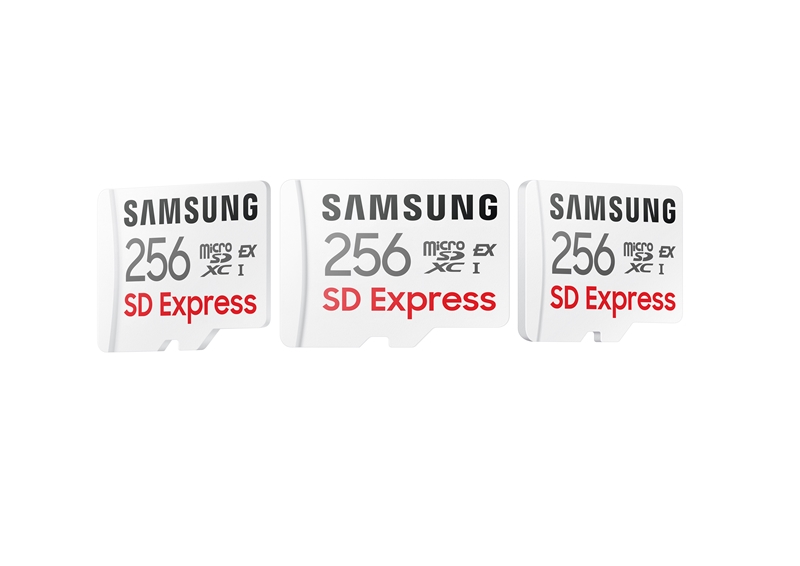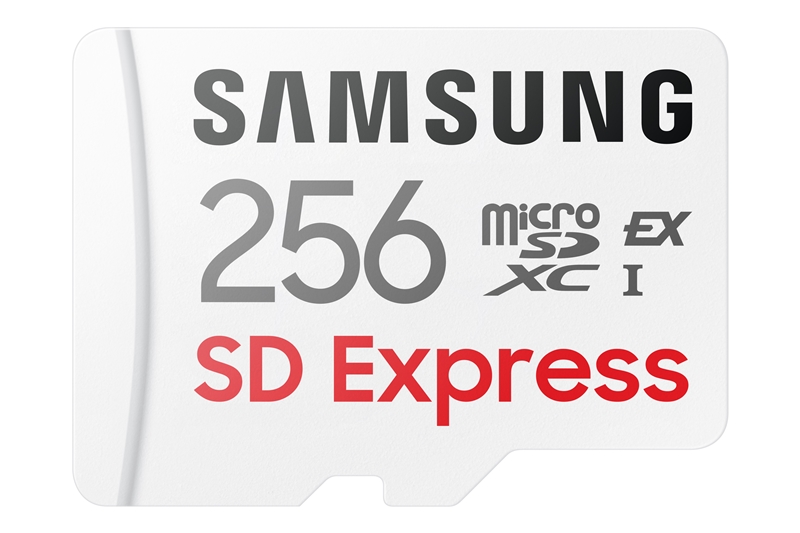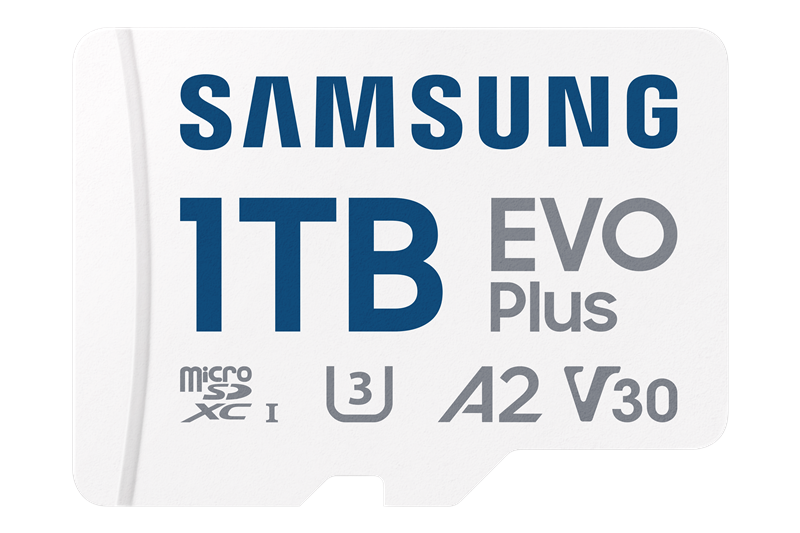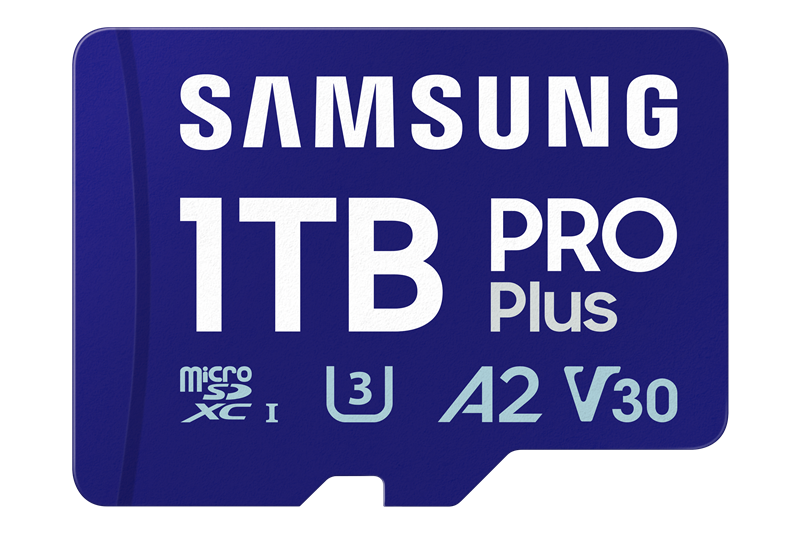Samsung’s New microSD Cards Bring High Performance and Capacity for the New Era in Mobile Computing and On-device AI
Samsung samples industry-first 256GB SD Express microSD card boasting speeds
more than four times faster than current interface
Samsung’s 1TB UHS-1 microSD card in mass production
based on latest V-NAND technology

SEOUL, Korea – Feb. 28, 2024 – Samsung Electronics Co., Ltd., the world leader in advanced memory technology, today announced that it has started sampling its 256-gigabyte (GB)[1] SD Express[2] microSD card with sequential read speed of up to 800 megabytes per second (MB/s) and has commenced mass production of its 1-terabyte (TB)[3] UHS-1 microSD card. With the introduction of its next-generation microSD card line-up, Samsung aims to provide differentiated memory solutions required for tomorrow’s mobile computing and on-device AI applications.
“With our two new microSD cards, Samsung has provided effective solutions to address the growing demands of mobile computing and on-device AI,” said Hangu Sohn, Vice President of the Memory Brand Product Biz Team at Samsung Electronics. “Despite their tiny size, these memory cards deliver powerful SSD-like performance and capacity to help users get more out of demanding modern and future applications.”
Industry-First SD Express microSD Card Offers Maximum Speeds of 800 MB/s

For the first time in the industry, Samsung introduced a new high-performance microSD card based on the SD Express interface. The development was the result of a successful collaboration with a customer to create a custom product.
Thanks to its low-power design as well as firmware technology optimized for high-performance and thermal management, Samsung’s SD Express microSD card offers performance equivalent to SSDs in a small form factor. While read speeds for traditional microSD cards based on the UHS-1 interface were limited to 104MB/s, SD Express was able to boost it to 985MB/s, although commercial availability of the latter were not viable in microSD cards until now.
The sequential read speed of Samsung’s SD Express microSD card reaches up to 800MB/s — 1.4 times faster than SATA SSDs (up to 560 MB/s) and more than four times faster compared to traditional UHS-1 memory cards (up to 200 MB/s), allowing improved computing experiences in various applications, including PCs and mobile devices. To ensure stable performance and reliability for the small form factor, Dynamic Thermal Guard (DTG) technology maintains the optimum temperature for the SD Express microSD card, even during long usage sessions.
1TB UHS-1 microSD Card With Cutting-Edge 1Tb V-NAND

Samsung’s new 1TB microSD card stacks eight layers of the company’s 8th generation 1-terabit (Tb) V-NAND within a microSD form factor, realizing the high-capacity package that used to be possible only in SSDs. The new 1TB microSD card passes the industry’s most rigorous test settings and offers reliable usage even in challenging environments, with features such as water protection, extreme temperature, drop-proof design, wear-out protection, as well as X-ray and magnetic protection[4].

Availability
The 256GB SD Express microSD card will be made available for purchase later this year, and the 1TB UHS-1 microSD card is set to launch within the third quarter of this year.
[1] 1 gigabyte (GB) = 1,000,000,000 bytes (1 billion bytes). Actual usable capacity may vary.
[2] SD Express: The new SD card interface with PCIe Gen3x1 (based on SD 7.1 specification released in Feb. 2019), the theoretical transfer speed of an SD Express card is 985MB/s
[3] 1 terabyte (TB) = 1,000,000,000,000 bytes (1 trillion bytes). Actual usable capacity may vary
[4] Samsung is not liable for any damages and/or loss of data or expenses incurred from memory card data recovery. The six proofs claimed is only applicable for 1TB UHS¬-1 microSD Card, not for 256GB SD Express microSD Card. 1M depth, salt water, 72hrs. Operating temperatures of -25℃ to 85℃ (-13°F to 185°F), non-operating temperatures of -40℃ to 85℃ (-40°F to 185°F). Withstands standard airport x-ray machines (Up to 100mGy). Magnetic field equivalent of a high-field MRI scanner (Up to 15,000 gauss). Withstand drops up to 5meters (16.4feet). Up to 10,000 swipes.